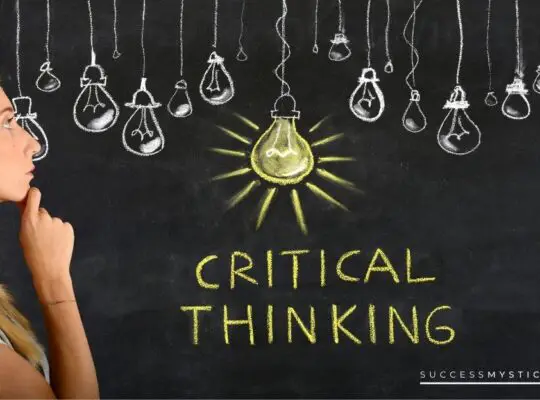At times, it seems as though we are living in a world of chaos. When you add that to the stresses and havoc of your own life and, well, it seems like there’s just too much going on to ever feel at peace again. You have so much to do, but there is never enough time to do it in.
As much as you’d like to be organized and remain calm under pressure, it feels as though you are constantly putting out fires. You work through your to-do lists and your issues and with those, you have to walk through anxiety, frustration, stress, anger, and who knows what other emotions are swirling around within you. What we do know is they are creating a state of agitation and that is negatively impacting your health, and it also affects your ability to make decisions.
If we have but one certainty in life, it’s that we will be faced with difficult decisions. How we decide will either allow us to progress or hold us back (if not take you back beyond square one). When you allow your emotions to get the best of you, you are losing out on a chance to capitalize on your opportunities and ultimately, to move forward in life. You might not realize it now but being able to stay calm under pressure might just be the difference between success and failure.
The Value Of Calm
If you grow your ability to remain calm while under pressure, then you are more likely to resist the effects of stress and anxiety. You will adopt a calm approach that improves your productivity and your health, both physically and mentally. Calm will offer you a sense of control of your emotions, your thoughts, as well as the events of your life.
Of course, you can’t control everything and there are always going to be circumstances outside of your control. However, your sense of calm will help you navigate these with ease. Perhaps more importantly, this new calmness under pressure will help you focus in the right way and on the right things and more specifically, at the right time.
It will improve your communication skills, which will make you a more effective person. When you remain calm and distance your emotions from a conversation, you can share your needs and wants more efficiently. People will hear you.
The Qualities of Calm
You can’t start to reap the benefits of calmness until you first become a more mindful person. That means having the ability to let go of the stress and anxiety in your life to become fully focused on the present. In mindfulness, there is no space for past regrets, current stresses or future worries. It’s bringing your focus and your awareness to right now. Why? It’s where the answers lie.
Another quality of calmness is patience. We could all use more of it if we’re being totally honest. Sometimes all you need is a little bit more patients in order to understand what is going on in your life (or the lives of others). It can help you gain more insight into your situation and in calmness, there is an abundance of patience.
Additionally, optimism is a necessity of calmness. It’s what will drive your motivation and help you walk through the most arduous of paths. Optimism allows you to move forward and find the courage that you will need to keep going, despite the obstacles that might be standing in your way.
Responding To High-Pressure Situations
How do you respond to high-pressure situations right now? Have you ever stopped to consider how this is impacting your life?
Ask yourself these questions to gauge where you are right now.
- What people often cause me to give in to pressure?
- Which circumstances or events cause me to give in to pressure?
- What specific things result in me losing my cool?
- In what way do these triggers impact my physical and/or emotional state?
- How do I react during high-pressure situations?
- Why is this my go-to response?
- Does this response hurt me?
- How does this response hurt me?
- Does this response help me?
- In what way does this response help me?
Be honest as you answer these questions and be as thorough as possible. This can serve as your inventory. They should provide you with a bit of insight into your behaviors and help you determine whether there is a pattern or not.
How To Deal With High-Pressure Situations
It’s inevitable that you will face pressure on a daily basis. It doesn’t matter how organized you are, how well you’ve planned your day – there will always be something or someone ready to throw a wrench into proceedings.
When the unexpected happens, you will start to feel your emotions rumble within it. In that moment, it feels as though you are carrying the world’s burdens on your shoulders. You can physically feel yourself sag under the weight of it.
These are the moments where you need to remain calm. The decision that you make in this very moment will either make it all worse or improve the situation. You can’t make the correct decision unless you are calm and collected. So, here is how you can do that.
1| Remove Yourself
Walk away from the situation, this is when you need to collect your thoughts and emotions and to do that effectively you need to create space between you and the issue at hand. If you can’t physically remove yourself from a situation, then you need to learn how to emotionally detach from it in order to process what is going on.
In these moments of space, you have to ask yourself why you are feeling so under pressure, what is triggering your feelings, what is piquing your emotions, and what external factor has caused this trigger of emotions. Ask yourself now whether you have a clear picture of the situation, whether your interpretation is correct, and if it’s your perspective that has caused the reaction.
There might not always be a reason (that you can identify) which has triggered your emotions. You are under pressure, but it’s not external. Rather, it’s coming from inside you. It’s you who is placing the pressure on yourself and that makes it feel as though it’s coming from an external place. Your mind is literally playing tricks on you.
The sooner you recognize this the better. This realization can help you shift your perspective. Now, it’s time to determine the outcome you wish to see. So, ask what you want to gain from the situation and what the outcome you desire is, what’s stopping you from getting it and why?
It’s difficult to make the right decision in a situation if you don’t know what it is you really want. So, gaining clarity on the subject will help you gain focus. Additionally, it will help you shut out irrelevant factors or unnecessary information.
Suddenly, you can prioritize things in order to manage your emotions and remain calm under pressure. So, what’s relevant, what’s important, and how can you successfully navigate the situation? By prioritizing things properly, you can hone in on the relevant information and easily manage a high-pressure situation.
2| Remain Attentive
When you’re under pressure, you need to notice the details. The answers always lie in the details. When you are faced with a high-pressure situation, it’s completely normal to initially feel overwhelmed. This feeling will twist your problems, worries, and anxiety into a messy spiral of information. It’s difficult to separate it all when it has amalgamated into one giant monster of concern.
That’s why you’re overwhelmed with no end in sight. However, pushing all that aside in order to focus on the details will save you. Look at the little things – your behavior, the circumstances, the behavior of others. Remain attentive because the more you do the more you will notice. From there, you start to see the tangled mess untangle itself and separate into easily understood individual pieces of your puzzle.
3| Watch Your Language
Pardon my French! No, not that type of language – empowering language. Your mindset really matters in high-pressure situations and what helps you create your mindset is the language that you use. Not just the words you speak aloud, but also your inner dialogue.
This language can calm you down or create a total sense of panic. So, what type of language do you use inwardly as you tackle high-pressure situations? You want to say things like you are capable, strong, focused, calm, and in control.
This is the language that will center you and help you feel as though you are in control and calm. You have just managed your emotional response and now, you are capable of making the right decision to move forward.
4| Ask The Right Questions
This is part of using empowering language, but important enough to deserve its own heading and section. Asking the right questions will help you remain centered and calm. So, when you find yourself in a high-pressure situation ask yourself how remaining calm will benefit you, what silver lining there is in the situation, and how a calm mind will help you navigate the situation successfully. Notice that these questions are designed specifically to elicit positive responses that will help you control your emotions. This allows you to use your emotions positively.
5| Temper Your Thinking Habits
The questions you ask, the language you use, all of this translates to your thoughts (or from them). Your thoughts can limit you or they can empower you. What does an unhelpful thought look like? Well, those are the thoughts you think blaming yourself, blaming others, and blaming external circumstances.
It can also be thoughts that lead you to get caught up in analyzing a situation and getting lost within the details. This tends to make the negatives look far greater than they are. Unhelpful thoughts lead to turning every situation into a catastrophic one. Whatever way you dice it, these are not productive thoughts and you will end up feeling miserable.
It’s important to remain focused on what you can control. The only way that you can do that is within yourself. You control the questions you ask and the language that you use. Once you have proper control over these, then you will be able to successfully manage your thoughts and therefore, your emotional response. This will provide you with a sense of calm, which is precisely what you will need to walk through high-pressure situations.
6| Seek Support
You have two distinct choices when you are under pressure. You can go it alone or you can seek support. Sometimes, no matter how strong you are, you just can’t navigate a difficult situation on your own.
When you feel like this, you are more likely to make a mistake or be derailed by an obstacle. Speak to someone who has been through a situation like this or someone who is in the situation with you. Two heads are better than one. Their support should fill you with confidence and help you bring about a sense of calm.
7| Keeping Calm
Remaining calm is the key to handling high-pressure situations. While it’s a state of mind, it is one that you can adopt by changing your behaviors and habits. So, we have some ways that you can do that to help you on your journey to staying calm under pressure.
- A Calm Environment – it’s difficult to maintain a sense of calm if you are surrounded by chaos. So, it’s vitally important that you create a calm environment. Is your workspace cluttered? Is your home? This kind of disorganization fuels chaos in your mind. Organize the places where you spend the most time. At home, you can use aromatherapy candles or a diffuser to create calm. You can use candles, colored lights, and calming music to bring you back to a place of peace. This is harder to do in the workplace. However, you can keep aromatherapy oil handy and place it on a tissue as you run through a calming exercise.
- A Calming Routine – you should have a daily routine that provides you moments of calm. You can’t always change your daily routine to reduce chaos, but you can add time for calm to it. It might be that you take time out to enjoy a bubble bath each evening or you schedule reading time. Whatever it is that calms you down, be sure that you make time for it every day. Ideally, you should have different options available to you, including routines that you can complete at work if you start to feel pressure.
- Visualization – you can bring yourself back down to earth with the power of visualization. When you are walking through a period of uncertainty or experiencing emotional turmoil, this can be helpful. You just need a quiet place to sit comfortably (or lie down). You will also need some tranquil music. To start, you can let your mind wander. Once it’s had time to do this, you need to gain control over the images and take yourself to a peaceful place. A lot of people joke about finding their happy place, but this exercise really is about finding that happy place and retreating to it to find a sense of calm. Spent some time chilling out in your happy place and explore it as you like. The point of this is to use it to melt your stress away. Once you establish this as your happy place, you can retreat to it when needed.
- Breathing – breathing is a major part of meditating, yoga, and visualizing. However, it can serve you well on its own as well. Deep breathing can help your body relax and maintain calm under pressure. It’s simple. Inhale deeply through your mouth and count to four, pause for four, now exhale through your nose as you count to four. If you spend five minutes doing this, then you can regain composure.
- Build Your Coping Skills – this doesn’t need to be complicated. It’s about understanding where each of your emotions stems from and knowing how best to handle those responses in a moment. This frees you from being held hostage by your emotions. With coping skills, you are in complete control of your emotions and your destiny. It will take time to build those coping skills, but it will be worth it.
- Make Changes To Your Lifestyle – there are certain lifestyle factors that will influence your emotions, whether you realize it or not. So, consider how you can make changes to these in order to improve your ability to remain calm under pressure.
- Sleep & Exercise – a good night’s sleep is crucial to managing your emotions. Exercise can also improve your sleep and boost your mood.
- A Healthy Diet – your diet influences your cognitive function, it can help you manage a healthy sleep routine, and your weight as well. It’s important that you avoid processed foods, limit your alcohol intake, quit smoking, and avoid drug use. All of these can make you feel on edge.
- Simplify Your Life – how can you remain calm when your life is a mess? Whether it’s clutter, commitments or something more complicated, clear things up to create a bit of simplicity. You can start by de-cluttering and then organizing what’s left. Review your commitments and ask which of them is necessary or stealing your joy.
- Build Your Social Network – there is no greater support than your friends and family. You want to turn to positive people who build you up. Your support network will be there for you as you walk through life’s most difficult moments. Think about your own social network and how you can grow it. Are you doing enough to maintain those ties? You can’t rely on your friends if they can’t rely on you. We all need an anchor.
- Slow Your Roll – some people enjoy a frantic pace, but that’s not for everyone. It only fuels anxiety and stress. If you often experience stress or feel anxious during your normal day, then this indicates you’re doing too much. It’s time to slow down and the only way you can do that is by prioritizing. Just to be clear, slowing down doesn’t mean you should take twice as long to tackle your responsibilities. It simply means that you should act more consciously. It also means that you should find time to relax.
Final Thoughts
Perhaps one of the most effective ways to remain calm under pressure is to prepare for problems. It’s impossible to specifically prepare for an unexpected obstacle. However, thinking about possible scenarios removes the fear of the unknown.
It’s no longer unexpected when you have planned how to react to it. Naturally, when you are prepared you feel calmer and more collected. Often, the greatest stress stems from those unexpected events.
Another important step is to take time to reflect on the consequences of your actions, choices, and decisions… but, before you act, before you make a choice or decision. Think about the possibilities that will stem from your behavior.
If you are faced with two decisions, there are consequences to both options. So, you should prepare your mind for the potential outcomes. When you do this, it is easier to remain calm when you deal with the event.
The most important takeaway we want you to walk away with is that no matter the situation you face, you can experience your emotions, but still stay calm. You’re not a robot so, you can’t just flip a switch and turn those off. You have to make space for those emotions, whatever they are, and learn how to temper them in the moment in order to maintain focus and push through whatever pressurized situation you are facing.
How do you perform under pressure? What steps can you take to make sure you remain calm under pressure?







